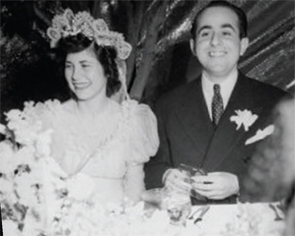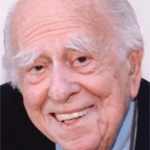Dr. Engleman’s second son, Edgar Engleman, MD, professor of pathology and medicine—immunology and rheumatology—at Stanford University School of Medicine, notes that his father came from an era when clinical care was very important. “He was a very good doctor, and he believed in supporting scientific research even if he wasn’t doing it with his own hands.”
That insight was reflected in Dr. Engleman’s involvement at the national level. As early as the late 1950s, he began volunteering with various professional committees and serving on editorial boards of scientific journals, including Arthritis & Rheumatism (1957–61) and Postgraduate Medicine (1971–76). Robert A. Gatter, MD, MACR, former clinical associate professor of medicine, Department of Medicine, University of Pennsylvania, was aware of Dr. Engleman during his years as an active member of the American Rheumatism Association in the 1960s. As the decades progressed, they grew close, as members of an informal group that regularly exchanged scientific information and enjoyed social gatherings.

Dr. Engleman and his wife, Jean, had been married since 1941. (photo courtesy of Engleman family)
“He encompassed so much national and international administration,” Dr. Gatter recalls. “He handled connections in countries around the world and organized huge meetings.”
One of those was the XIV Congress of the International League of Associations for Rheumatology (ILAR), held in San Francisco in summer 1977. (Later, from 1981–85, Dr. Engleman served as ILAR president.)
Dr. Gatter notes that Dr. Engleman’s organizational efforts contributed to the research momentum in the field. He adds, “Once you generate that kind of energy, it does tend to sustain itself.”
A core example of Dr. Engleman’s legacy had its genesis in the mid-1970s, when he was named to lead the National Commission on Arthritis. Convened by Congress to address the inadequate status of arthritis research, teaching and patient care in the U.S., the task force led to the creation of what is now the National Institute of Arthritis and Musculoskeletal and Skin Diseases (NIAMS).
During the same period, Dr. Engleman became “quite close” with actress Rosalind Russell, who in the 1960s developed severe rheumatoid arthritis. Ms. Russell became a vocal advocate, as a public member of the National Arthritis Act Commission, for establishment of more comprehensive arthritis training and research. She died in 1976; three years later, in 1979, after several NIH site visits, Dr. Engleman founded The Rosalind Russell Center for Rheumatology Research at UCSF. The Center was founded with an initial grant of $800,000 from the NIH. Subsequent to that, Dr. Engleman was approached by several friends of Ms. Russell who wanted to establish a foundation to augment the funding. In the 35 years that Dr. Engleman was director, the foundation supported five academic chairs in rheumatology, provided partial support for 130 rheumatology trainees and supplied supplemental funds for faculty members.
‘Missing a Shy Gene’
After his professional career playing in the orchestra for silent films at the Fox California Theater concluded, Dr. Engleman continued to nurture his love of music and performing. He collected rare violins, owning at various times Stradivari and, later, Gaurneri instruments, and played weekly with a string quartet. During summers, he was an active member of The Family, a private men’s club devoted to the arts and an offshoot of the Bohemian Club, which convenes annually in Portola Valley, Calif. Every season was capped by musical variety productions. Dr. Engleman performed and often wrote the narratives and was master of ceremonies for these events.
